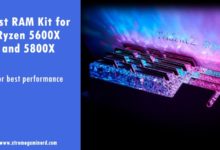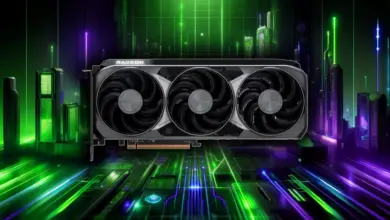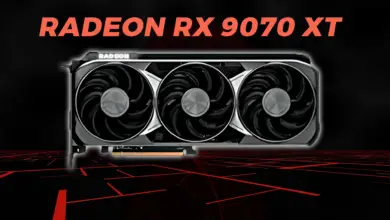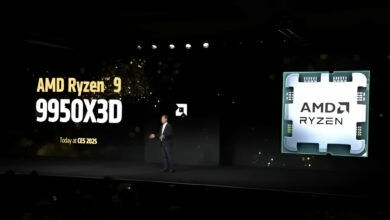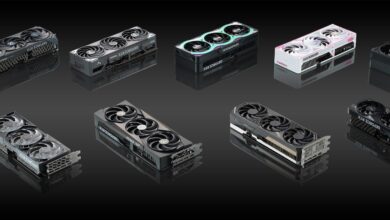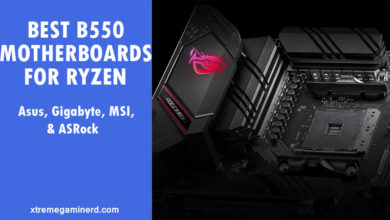When it comes to assembling the perfect PC, making informed decisions about your hardware components is essential. If you’ve set your sights on the AMD Ryzen 7 7800X3D, a processor known for its unique blend of performance and innovation, you might be wondering if the B650 chipset is a suitable partner.
In this exploration, we will unravel the synergy between this intriguing CPU and a B650 motherboard, focusing on overclocking capabilities, thermal considerations, gaming prowess, productivity performance, pricing, upgradeability, and future-proofing.
Specs at a Glance
Before we delve into the specifics, let’s take a moment to acquaint ourselves with the core attributes of the AMD Ryzen 7 7800X3D. This processor boasts 8 cores, 16 threads, and a base clock of 4.0 GHz, with a remarkable turbo boost capability of up to 4.7 GHz. It’s a processor designed to cater to a diverse range of computing needs.
Currently, the Ryzen 7800X3D is undoubtedly, the best gaming CPU for the money and is mostly targeted toward enthusiast gamers. This is why most of the users are more inclined to its gaming aspect rather than productivity capabilities.
On the other side, the B650 chipset is synonymous with cost-efficiency and can often be found on motherboards that balance performance with budget-friendliness. These motherboards are a downgrade compared to the X670 chipsets in terms of component compatibility and I/O connectivity. Still, there are several high-end B650 motherboards available that can compete with premium X670 motherboards.
Overclocking Potential
Overclocking is a realm of excitement for many PC enthusiasts, but can the B650 chipset handle the Ryzen 7 7800X3D’s overclocking ambitions?
First of all, the Ryzen 7800X3D is a locked CPU as the processor has problems in its design due to the presence of the 3D V-Cache. This is why, overclocking is out of the equation.
On the other hand, B650 motherboards, by nature, do not offer the same overclocking prowess as their higher-tier counterparts, such as the B550 or X570. While you can expect some modest overclocking options, the limitations of power delivery and cooling solutions may restrict your CPU’s potential.
Thermal Management
The Ryzen 7800X3D is well-known for its thermal problems as the CCD containing the 3D Cache doesn’t get enough cooling. The Ryzen 7 7800X3D is no slouch in the thermal department, and this is where the motherboard’s VRM quality and cooling design come into play.
B650 motherboards are generally designed for processors with moderate thermal requirements. They can manage the Ryzen 7 7800X3D at stock settings, but the processor is still prone to thermal throttling even at stock clocks if not given adequate cooling solution.
It’s advisable to use an AIO cooler for the 7800X3D if you want to keep the temps down. This is particularly necessary when the processor has a max operating temperature of 5 degrees Celcius lower than the non-3D counterparts.
Gaming and Productivity Performance
Gaming and productivity are areas where the Ryzen 7 7800X3D excels. This is simply the best gaming CPU and is also a decent chip when it comes to rendering, compiling, encoding, and doing all sorts of CPU-intensive tasks.
When it comes to gaming, the B650 chipset is capable of providing a competent platform for your CPU. Most games rely more on GPU performance, and a B650 motherboard can capably handle the CPU aspect, allowing the Ryzen 7 7800X3D to shine in gaming scenarios.
In terms of productivity, the Ryzen 7 7800X3D’s formidable multi-core performance ensures that tasks like video editing, rendering, and content creation are completed efficiently. While a B650 motherboard may not unlock the CPU’s full potential compared to a higher-tier board, it can still offer a solid foundation for your productivity needs.
Pricing and Future-Proofing
One of the attractions of the B650 chipset is its affordability compared to higher-tier motherboards. If you’re working within a budget, a B650 motherboard may be an appealing choice. However, it’s essential to consider your long-term goals when investing in a CPU like the Ryzen 7 7800X3D.
If you have future upgrades in mind or aspire to make the most of your CPU’s capabilities down the line, allocating a bit more for a higher-tier motherboard, such as one with an X670 chipset, can be a wise investment. This ensures that your motherboard can handle potential future upgrades without needing replacement.
However, if you want to add a couple of storage drives, some cooling solutions, a GPU, a few RAM Sticks, and connect some RGB peripherals, the B650 chipset is surely more than adequate.
Final Words
Is the B650 chipset a suitable match for the AMD Ryzen 7 7800X3D? The answer largely depends on your specific needs and budget. If you’re working within budget constraints and primarily using your PC for gaming and everyday tasks, a B650 motherboard can competently support the Ryzen 7 7800X3D.
Remember, your motherboard is a pivotal component that significantly influences your PC’s performance and longevity. Analyze your requirements and objectives carefully to make an informed decision that aligns with your computing aspirations.
